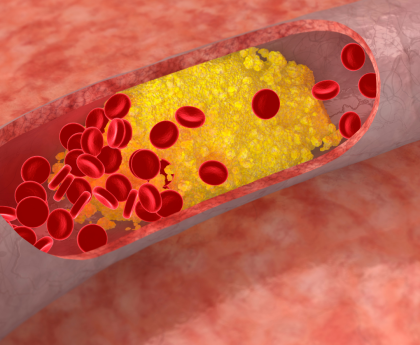High cholesterol can significantly raise the risk of cardiovascular diseases, including heart attacks, strokes, and peripheral artery disease. When cholesterol accumulates in the blood vessels, it limits blood flow, leading to serious health concerns.
Factors like obesity, smoking, a sedentary lifestyle, and unhealthy eating habits can contribute to elevated cholesterol. Fortunately, natural lifestyle adjustments can help manage cholesterol and support better heart health.
Here are some effective strategies to reduce cholesterol naturally and improve overall wellness.
1. Make Exercise a Daily Habit
Exercise is one of the most effective ways to balance cholesterol. Physical activity boosts high-density lipoprotein (HDL), known as “good” cholesterol, which helps to remove low-density lipoprotein (LDL), or “bad” cholesterol, from the bloodstream. Regular physical activity—such as walking, swimming, cycling, or jogging—improves cardiovascular health and can significantly impact cholesterol management. Aim for at least 30 minutes of moderate activity five times a week for the best results.
2. Quit Smoking for Healthier Arteries
Smoking can lead to an increase in LDL while lowering HDL, which negatively impacts cholesterol balance. This habit also damages the blood vessels and accelerates the buildup of plaque in the arteries, putting one at a higher risk of heart disease. Quitting smoking brings almost immediate benefits—improved blood circulation, normalized cholesterol levels, and healthier lungs and heart. For those who find it challenging to quit, smoking cessation programs, support groups, or medical assistance can be helpful resources.
3. Maintain a Healthy Weight
Excess body weight can raise LDL levels and lower HDL, increasing the risk of heart disease. Studies show that losing even a small amount of weight can positively impact cholesterol levels. Reducing calorie intake, focusing on nutrient-dense foods, and incorporating regular physical activity can help you achieve and maintain a healthy weight. Maintaining a balanced weight not only reduces cholesterol but also supports overall metabolic health.

4. Focus on a Heart-Friendly Diet
A balanced, nutrient-rich diet is key to managing cholesterol. Choosing a variety of whole foods, including fruits, vegetables, whole grains, nuts, and seeds, can support heart health and help regulate cholesterol. Here are some specific foods that are especially beneficial:
- Oats and Barley: Rich in soluble fiber, these grains can help lower LDL, preventing it from being absorbed into the bloodstream.
- Citrus Fruits: Containing pectin, a type of soluble fiber, citrus fruits work to reduce LDL.
- Omega-3 Fatty Acids: Found in fatty fish like salmon, as well as in flaxseeds and chia seeds, omega-3s help lower triglycerides and protect against abnormal heart rhythms.
In addition to these foods, it’s wise to limit the intake of processed snacks, sugary beverages, and fried foods. Avoiding trans fats and opting for healthy fats like olive oil, avocado, and nuts can support balanced cholesterol and heart health.
5. Reduce Alcohol Consumption
Alcohol consumption can contribute to high cholesterol and other cardiovascular issues. Excessive drinking impacts blood pressure and can lead to increased LDL and triglyceride levels. While some research suggests that moderate alcohol intake may have certain heart benefits, it’s essential to consume it sparingly. For those looking to improve heart health and lower cholesterol, reducing alcohol intake or avoiding it altogether can make a positive difference.
6. Manage Stress Levels
Stress can indirectly contribute to higher cholesterol levels by promoting unhealthy coping habits like overeating, smoking, or neglecting exercise. Practicing stress-reducing techniques—such as meditation, deep breathing, yoga, or mindfulness—can help you better manage your cholesterol. In addition to improving mental health, reducing stress has a positive impact on blood pressure and overall cardiovascular health.
7. Increase Fiber Intake
Fiber, especially the soluble type, is beneficial for managing cholesterol. Foods high in soluble fiber include beans, lentils, apples, and carrots. Soluble fiber binds with cholesterol in the digestive system, allowing it to be eliminated from the body instead of absorbed into the bloodstream. By adding fiber-rich foods to your diet, you can support heart health and help prevent cholesterol buildup in the arteries.

8. Stay Hydrated
Proper hydration is essential for overall health and can support balanced cholesterol. Water aids in digestion, helping the body eliminate toxins and excess cholesterol. Staying well-hydrated also promotes better metabolic function, helping to maintain optimal blood flow and prevent cholesterol buildup. Aim to drink at least eight glasses of water a day, and consider adding lemon or herbal tea for additional flavor and benefits.
In Conclusion
Managing cholesterol naturally requires consistency and a commitment to heart-healthy habits. Regular exercise, a balanced diet, stress management, and avoiding smoking or excessive alcohol consumption can all play a vital role in reducing cholesterol.
Alongside these lifestyle changes, it’s essential to get regular check-ups and follow your doctor’s advice on managing cholesterol for long-term heart health.
Visit our store here to purchase superfoods containing supplements for treating Cholesterol.
Do you want more updates on how to incorporate natural Herbs into your daily routine, Join our community for growth, updates, Learning and Huge Discounts Here
![]()





